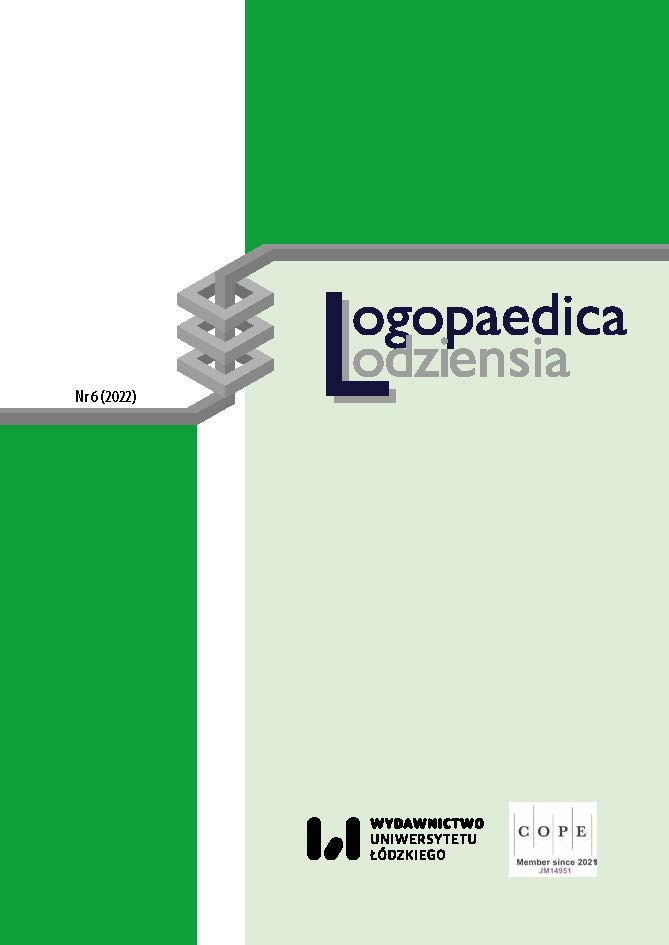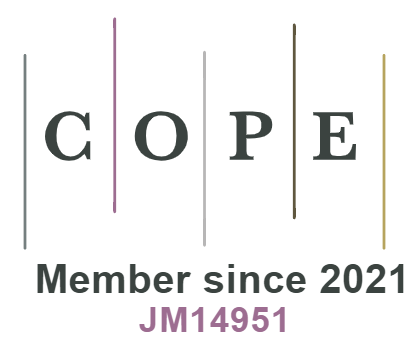Sudden Dizziness of Peripheral Origin Caused by Head Injury. Case Presentation
DOI:
https://doi.org/10.18778/2544-7238.06.12Keywords:
sudden dizziness, peripheral origin, head injuryAbstract
Sudden dizziness attacks need to be diagnosed by multidisciplinary team of health professionals, including neurologist, otolaryngologist but also internist, cardiologist, and ophthalmologist. This is the case of a thirty‑two‑year‑old patient, who was admitted to the Otolaryngology Clinic through emergency department due to dizziness described as visualized spinning of the environment towards the right. In addition, he was suffering from nausea without vomiting at all. The ailments appeared for the first time in his life and it was in the night of hospital admission. During the medical evaluation, the patient confessed to get hit on his lower‑back of the cranium about a week ago, without losing consciousness. After performing an otorhinolaryngology physical examination and diagnostic tests, including laboratory, otoneurological and imaging tests (CT scan of the head) as well as neurological consultation, the following disorders were diagnosed: sudden dizziness of peripheral origin after a head injury and unilateral vestibular loss (affects left side). In this case, pharmacological treatment and habitual exercises were applied and recommended to continue for the next 3 months.
Downloads
References
Jannetta P.J., Moller M.B., Moller A.R., 1984, Disabling positional vertigo, „The New England Journal of Medicine”, Vol. 310(26), s. 1700–1705.
Google Scholar
DOI: https://doi.org/10.1056/NEJM198406283102604
Kantor I., Szlufik S., Kubiczek‑Jagielska M., Woźniak M., 2014, Kontrowersje diagnostyczne otolaryngologa i neurologa u chorych z zaburzeniami równowagi diagnozowanych w szpitalnych oddziałach ratunkowych, „Otorynolaryngologia”, t. 13, nr 1, s. 17–25.
Google Scholar
Kerber K.A., Brown D.L., Lisabeth L.D., Smith M.A., Morgenstern L.B., 2006, Stroke among patients with dizziness, vertigo, and imbalance in the emergency department: a population‑based study, „Stroke”, Vol. 37, No. 10, s. 2484–2487.
Google Scholar
DOI: https://doi.org/10.1161/01.STR.0000240329.48263.0d
Narożny W., Siebert J., Wojtczak R., 2010, Epidemiologia zawrotów głowy i zaburzeń równowagi, „Forum Medycyny Rodzinnej”, t. 4, nr 5, s. 356–365.
Google Scholar
Obrębowski A. (red.), 2010, Standardy rozpoznawania i leczenia zawrotów głowy, Warszawa: Wydawnictwo OinPharma.
Google Scholar
Prusiński A., 2001, Wybrane problemy diagnostyki zawrotów głowy w praktyce neurologicznej, „Vertigo Forum”, t. 2, s. 5–22.
Google Scholar
Śliwińska‑Kowalska M., 2005, Audiologia kliniczna, Łódź: Mediton.
Google Scholar
Tyrak J., 2017, Postępowanie w urazach czaszkowo‑mózgowych, „Anestezjologia i Ratownictwo”, t. 11, s. 412–431.
Google Scholar
Wiącek M., Sadza I., Bartosik‑Psujek H., 2018, Diagnostyka zawrotów głowy w warunkach szpitalnego oddziału ratunkowego, „Polski Przegląd Neurologiczny”, t. 14, nr 4, s. 209–219.
Google Scholar
Downloads
Published
How to Cite
Issue
Section
License

This work is licensed under a Creative Commons Attribution-NonCommercial-NoDerivatives 4.0 International License.












